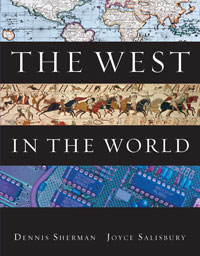1 glasnost A) restructured the economy by decentralizing planning. B) curtailed censorship and encouraged freer discussion. C) stood for reductions in military stockpiles. D) created a new legislature. 2 A) Hungary. B) East Germany. C) Poland. D) Czechoslovakia. 3 A) "velvet revolution." B) "coup d'état." C) "white rebellion." D) "reformation." 4 A) Poland. B) Bulgaria. C) Romania. D) Hungary. 5 A) Russia B) Ukraine C) the Baltics D) Georgia 6 A) Commonwealth of Independent States. B) "Treaty of Union." C) European Community. D) Warsaw Pact. 7 A) Václav Havel. B) Lech Walesa. C) Mikhail Gorbachev. D) Boris Yeltsin. 8 A) Charter 77. B) the Prague Spring. C) Solidarity. D) the Civic Forum. 9 A) Bosnia. B) Chechnya. C) Armenia. D) Kazakhstan. 10 A) Slovenia B) Croatia C) Serbia D) Bosnia 11 A) liberalism. B) conservatism. C) communism. D) socialism. 12 A) change the name of their organization to the European Free Trade Association. B) admit Poland and Czechoslovakia. C) establish a common currency, the Euro. D) set up a joint army corps. 13 A) industrialization. B) postmodernism. C) modernization. D) globalization. 14 A) China B) Japan C) Taiwan D) Singapore 15 A) Beijing. B) the "New Economic Zones." C) Hong Kong. D) Taiwan. 16 A) of rising pan-Arab unity. B) Iraq had invaded neighboring Kuwait. C) Islamic fundamentalists had come to power in Iran. D) of a conservative backlash requiring women to wear veils. 17 A) Chinese B) French C) Russian D) English 18 A) have been engaged in criticism of contemporary art and culture since 1914. B) are concerned only about the problems of popular culture and "Americanization." C) are skeptical that objective truth is possible, because all disciplines, including science, are infected by the beliefs and values of the culture that produced them. D) confine themselves to criticism of art only. 19 A) smallpox B) tuberculosis C) influenza D) AIDS 20 A) an increase in atheism. B) religious revivals. C) mass conversions to Catholicism. D) a wave of apocalyptic rumors and visions. 21 A) the arms race of the 1980s B) the growth of the black market C) the weakness of the Soviet leadership after 1975 D) the spread of new communications technology 22 A) Poland B) Hungary C) Czechoslovakia D) East Germany





